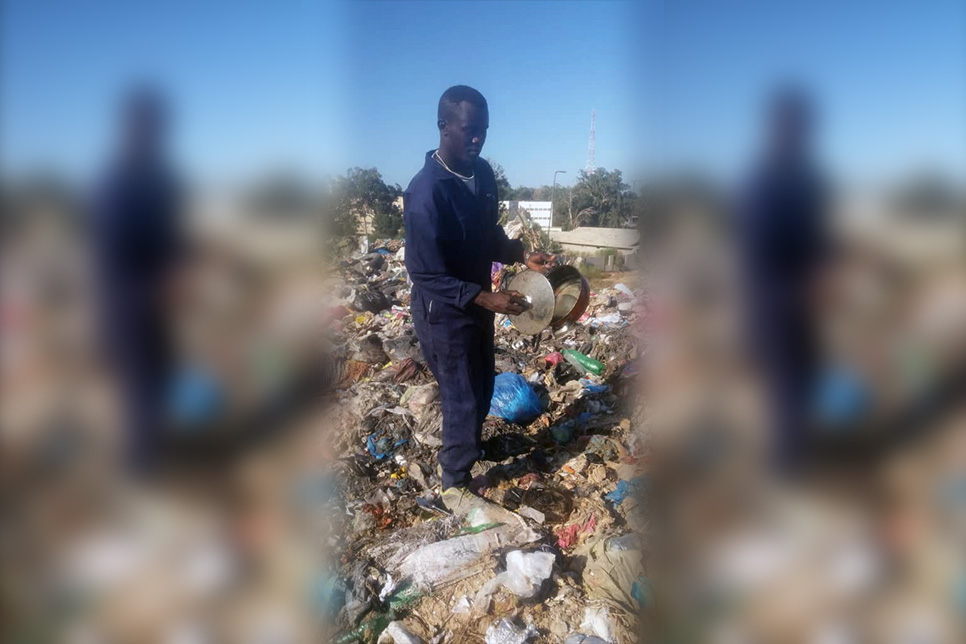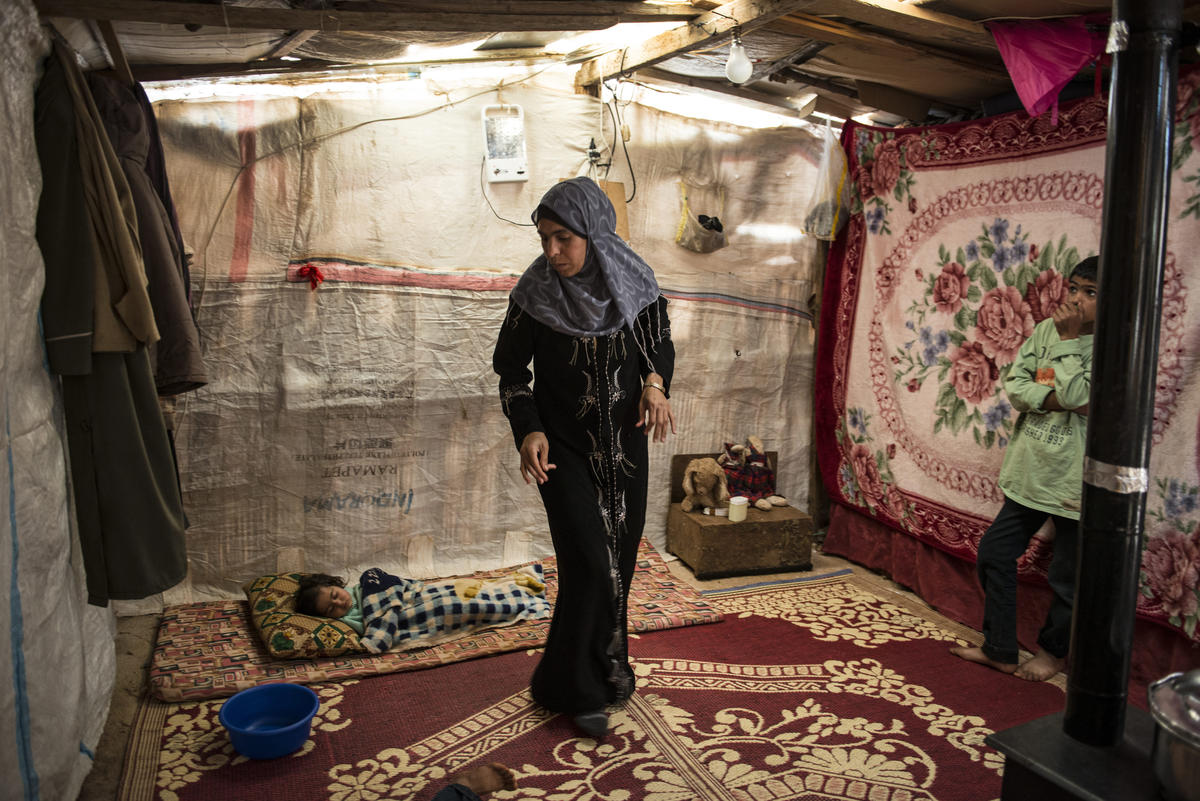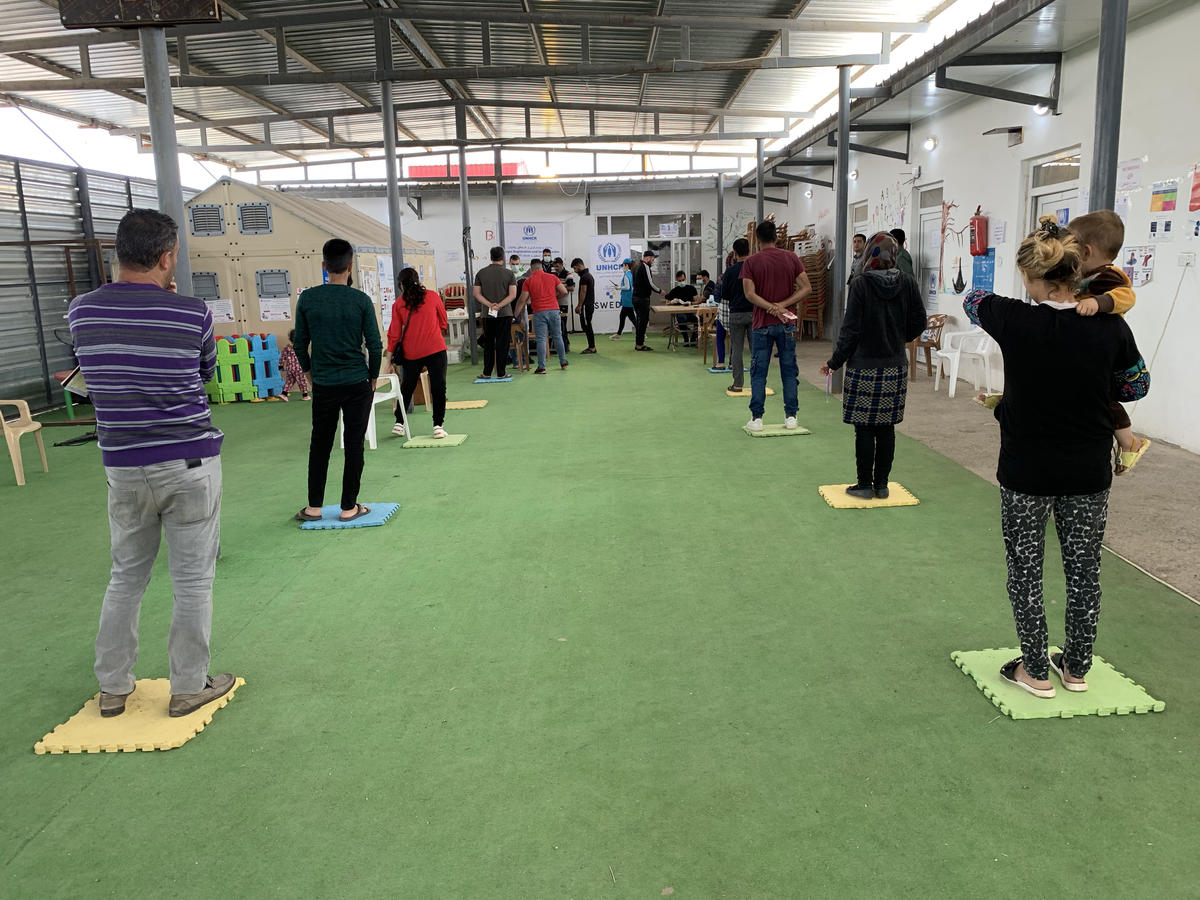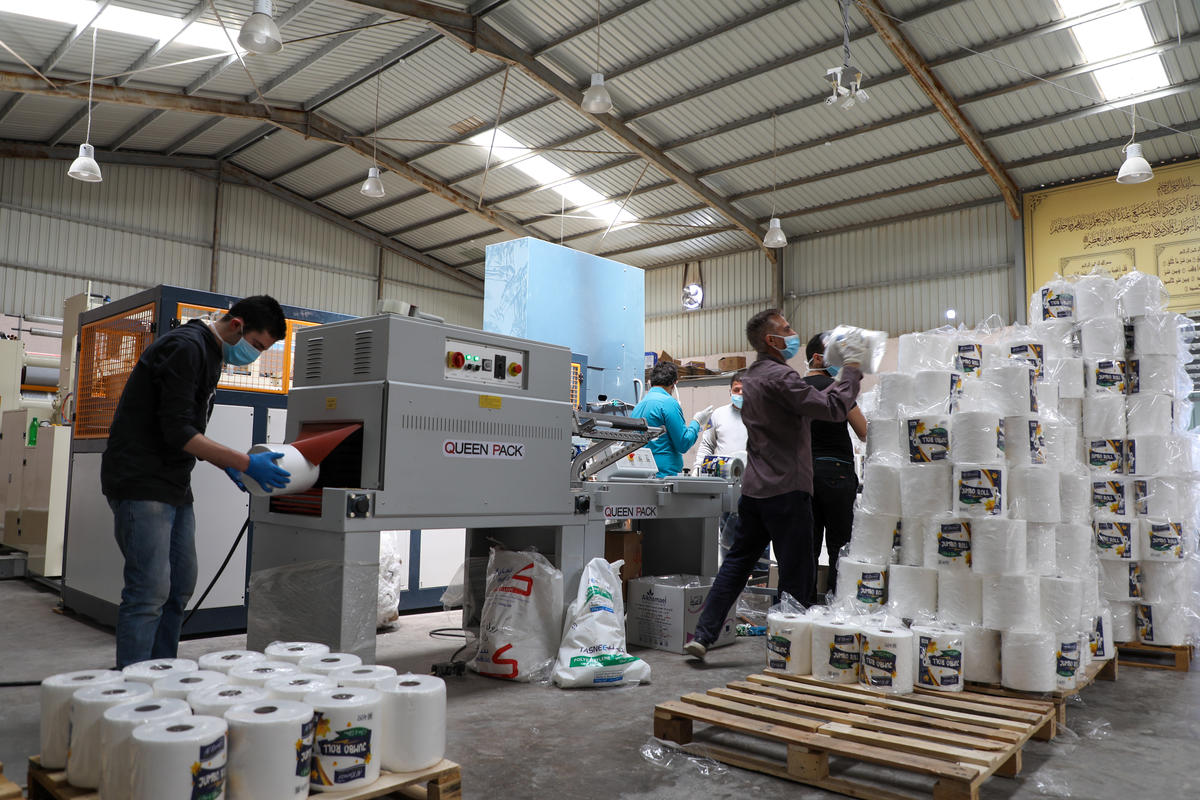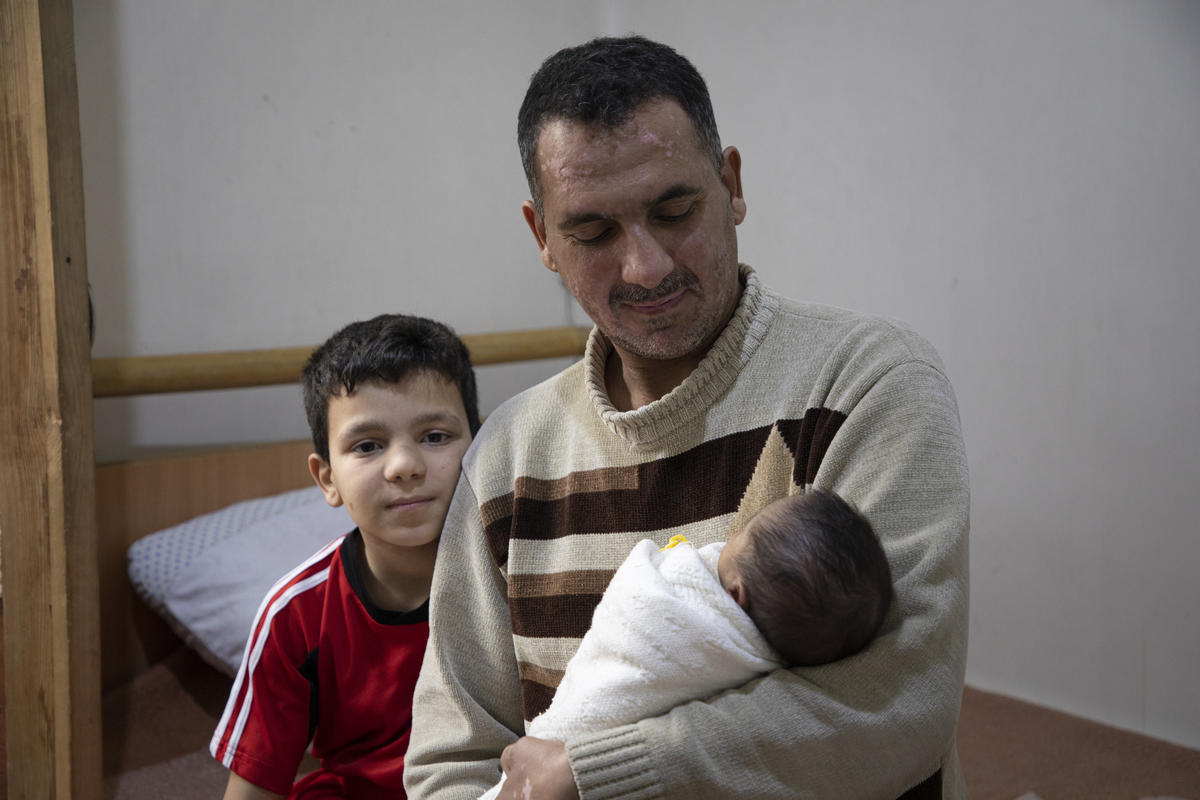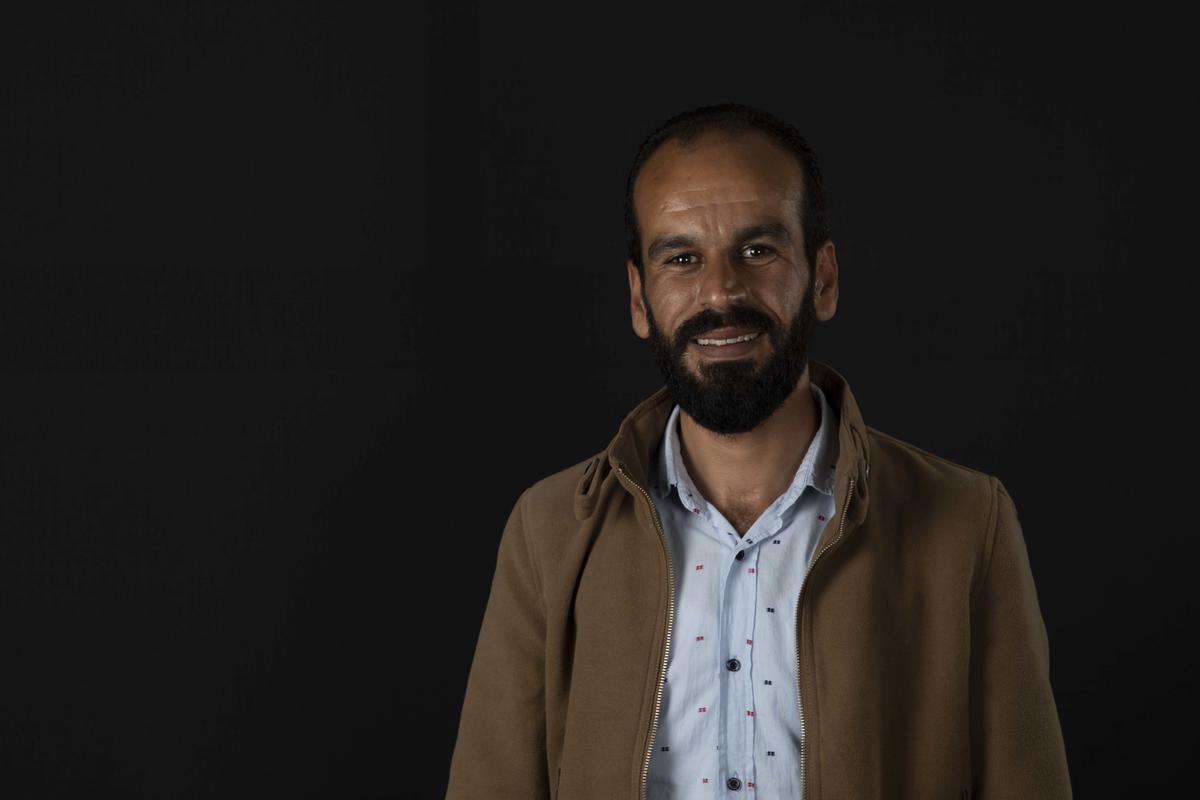Refugees across Arab world feel economic pain of coronavirus
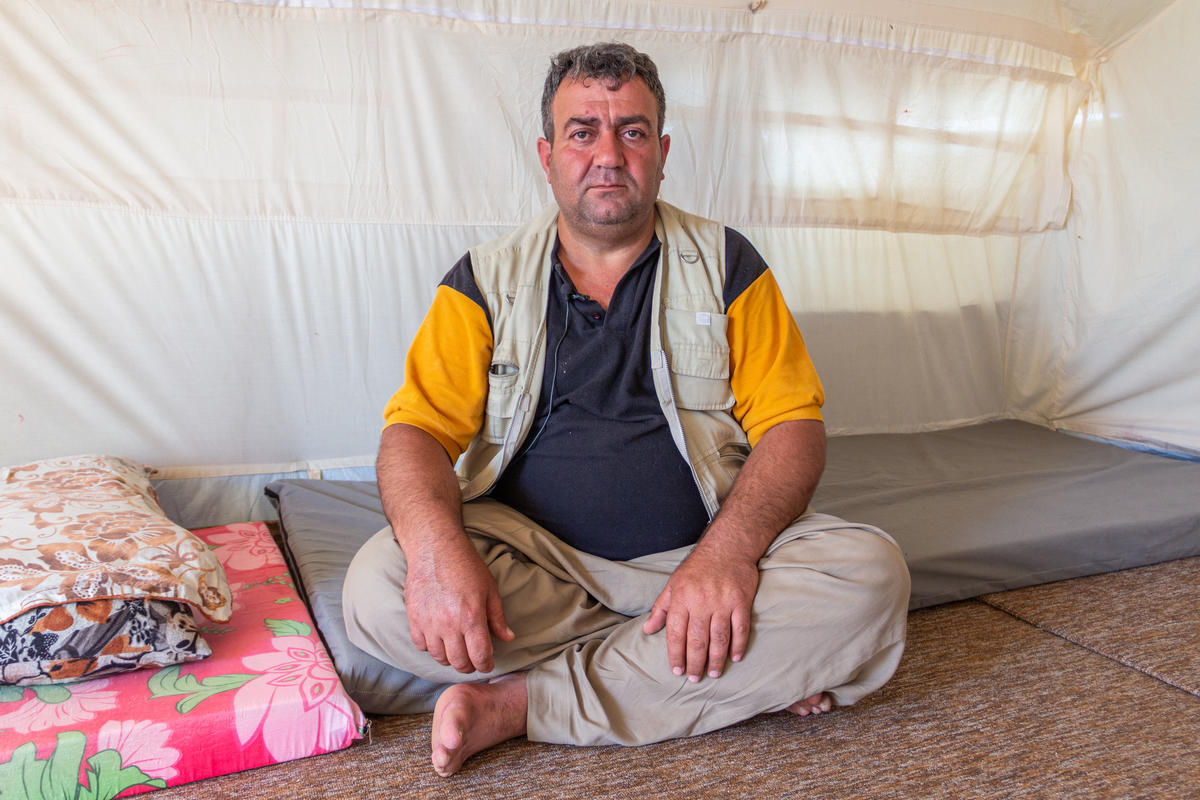
Refugees across Arab world feel economic pain of coronavirus
Two months ago, life was finally looking up for 33-year-old Mousab, a Syrian refugee living in Tunisia’s second-largest city, Sfax. He had recently used his savings to open a kebab restaurant and was looking forward to earning enough to marry his sweetheart. Then, in early March, COVID-19 struck.
The lockdown that followed has contained the spread of the virus, with less than 1,000 confirmed cases reported across the country. But the financial impact has been hard on Tunisians and refugees like Mousab.
“I have no income because I opened the restaurant about a month before the crisis,” explained Mousab, whose restaurant is now shuttered and his dreams of marrying on hold.
UNHCR, the UN Refugee Agency, has sought to cushion the blow by providing 500 Tunisian Dinars (US$173) in emergency assistance, but Mousab is fearful of what will happen if the crisis drags on.
“My biggest fear if the crisis persists is accumulating debts I cannot pay."
“My biggest fear if the crisis persists is accumulating debts I cannot pay, such as rent for my house and restaurant. Honestly, it scares me a lot just thinking about it.”
Global economic growth is likely to be halved by disruptions due to COVID-19, plunging 40-60 million more people into extreme poverty worldwide, according to OECD and World Bank projections. Worst affected will be those already living on the margins in low- and middle-income countries, where more than 85 per cent of the world’s refugees currently reside.
This harsh reality is already playing out across the Middle East and North Africa region, which along with Turkey is home to more than six million refugees and over 10 million internally displaced people fleeing violence in Syria, Yemen and beyond.
In many of the region's major refugee host countries such as Egypt, Iraq and Jordan, large numbers of refugees report having lost their main source of income. In Jordan, the impact on refugee women is profound, with almost all who were working saying they had seen their income source disrupted.
For Syrian refugee Naeem, who has lived with his family in the Jordanian capital Amman since fleeing Damascus in 2014, the current crisis could not have come at a worse time.
Working as a roof tiler on construction sites, he relies on earning enough during the warmer months when jobs are plentiful to see them through the rest of the year. Jordan’s lockdown has meant he has been unable to work for more than a month.
“We’ve been in Jordan six years and I never had to ask for help,” Naeem explained. “But at a time when I should be working the most, there is no work.”
"At a time when I should be working the most, there is no work.”
His biggest worry is what will happen if he cannot pay the 200 Jordanian Dinars (US$282) in rent he owes by the end of the month.
“I know many Syrians who haven’t been able to pay their rent and their landlords have no choice but to accept it, but our landlord has said that’s not possible,” Naeem said. “If we are not able to pay the rent this month we will have to look for a cheaper place to live.”
An increase in evictions or the threat of eviction have been similarly reported by refugees in Algeria, Egypt, Iraq, Lebanon, Libya, Mauritania and Tunisia.
In Lebanon, which was already suffering from an economic crisis before the virus brought further disruption, more than half of refugees surveyed in late April reported having lost livelihoods such as daily labour, with 70 per cent saying they have reduced food consumption due to a lack of funds.
“We have been living on vegetables for a while now,” said Hasna Harbi, a single mother from Homs in Syria living in a tented settlement in Lebanon’s Bekaa Valley. They rely on the wages of her two eldest sons, aged 20 and 16, to survive, but their earnings have dwindled to almost nothing since the lockdown began in March.
“The situation got worse in the last month,” Hasna added. “I cook smaller portions. We buy less, eat less. I buy bread on credit from the shop.”
“I cook smaller portions. We buy less, eat less. I buy bread on credit from the shop.”
UNHCR is doing what it can to offset the worst of the impact by providing emergency cash grants to those most in need. In certain countries, this includes members of the host communities who find themselves in similarly difficult circumstances.
While refugees that are able to find work are often among the more fortunate, their sudden loss of earnings and associated spending will have a knock-on effect on the wider refugee population and local communities that they help to support.
It will also increase dependence on already overstretched humanitarian resources such as cash assistance, requiring increased donor funding in support of refugees as well as vulnerable host countries.
Mona, a 33-year-old Somali refugee living in the Yemeni capital Sana’a, was forced to close her small beauty salon last month in the run-up to the busy wedding season. With her son and five other relatives relying on her regular daily income of 3,000 to 6,000 Yemeni Rials (US$6-12) to cover their basic needs, the loss of earnings threatens to leave them destitute.
“Because of coronavirus we lost our source of income which has made us dependent on others,” Mona said. “There is nothing like having your own business to make you feel self-reliant and strong. The salon is my family’s only hope.”
Inside Syria, where almost 6.1 million people are internally displaced and 11 million are in need of humanitarian assistance, the loss of income and rising cost of food triggered by the current health crisis are exacerbating an already desperate situation.
Rabih, 45, and his family were displaced multiple times after their home in East Aleppo was destroyed in 2012. In 2016, after finally settling in another neighbourhood, Rabih resumed work in the city’s textile industry. But with the factory closed since early March, he is fast running out of money and options.
“When I go down to the market, I stand there in a panic not knowing what to buy,” Rabih said. “With so little money and the prices skyrocketing, I buy one vegetable at a time, and [affording] meat is just unthinkable for now.”
Those working in the informal economy are among the most exposed as fragile sources of income collapse. This week the International Labour Organization estimated that almost 1.6 billion informal economy workers have suffered massive damage to their capacity to earn a living.
Among them is former engineering student Mohammed, who fled conflict in Sudan’s Darfur region in 2016 and now lives on a landfill site in the Libyan capital Tripoli, where he and a group of friends earn US$2-5 a day collecting recyclable waste.
Unable to take what they collect for sale due to a city-wide lockdown, Mohammed feels he has no choice but to seek a perilous route out of Libya.
“Prices of food and rent went up. Sometimes, we are not even able to go to the market as we are looked upon as carriers of the disease for being foreigners,” he said
“I will try to cross once again to Europe. I tried to cross twice in the past and failed. I ended up in detention centres every time. But I hope that this time I will make it.”
A steady flow of remittances from abroad has also helped to keep families across the region afloat, but given the global nature of the current crisis, even those are now drying up.
"This curfew has negatively affected all of us, and now I cannot go outside the camp for work.”
For others, there is little option but to wait and hope that the restrictions can soon be eased. Syrian refugee Farhad lives with his family in Bardarash Refugee Camp in the Kurdistan Region of Iraq. Before the crisis, he used to leave the camp each morning to work on construction sites for up to US$18 a day.
“I like to work and depend on myself. This curfew has negatively affected all of us, and now I cannot go outside the camp for work,” Farhad said.
He and others in the camp have received cash grants from UNHCR to help cover their basic needs during the lockdown, but refugees are also doing what they can to help each other out.
“Those who have saved their money in their bright days are now spending it and supporting those in need,” Farhad explained. “They will get their money back when life becomes normal and the curfew is lifted. This is how it works here: like brothers and sisters, refugees support each other.”
Reporting by Chiara Maria Cavalcanti in Tunis, Lilly Carlisle in Amman, Warda Aljawahiry in Beirut, Mona Alhajj in Sana’a, Hameed Maarouf in Damascus, Tarek Argaz in Tripoli and Rasheed Hussein Rasheed in Bardarash Refugee Camp, Kurdistan Region of Iraq. Writing by Charlie Dunmore.

